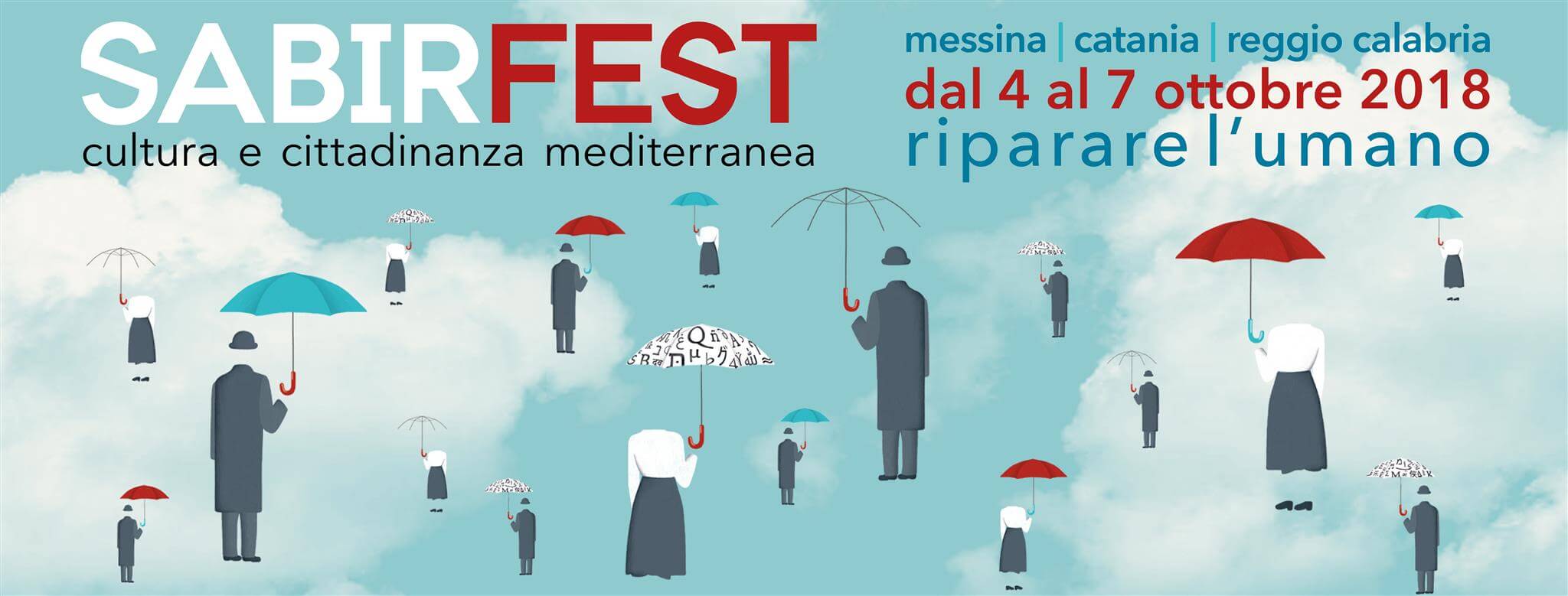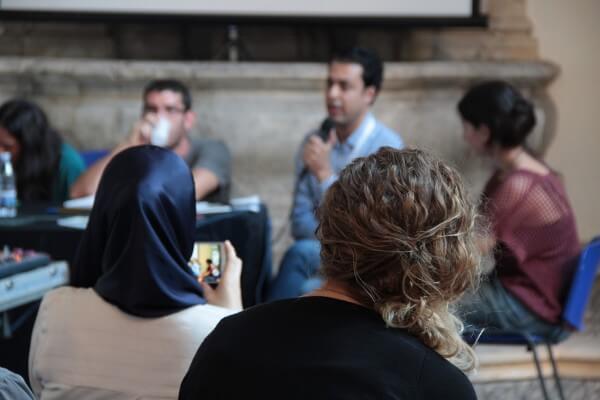BY: Gianluca Solera, Igor Stiks (co-authors of the pre-Manifesto), Anna Lodeserto (co-president of Maydan Association)
In the last decade, many Mediterranean nations and territories have been at the core of some of the most important social and political struggles of our time. However, the demands of those who massively protested against the old regimes of the region, as well as against unjust socio-economic systems and austerity measures, have often been betrayed. The lack of opportunities and visions on both shores of the Mediterranean has widened the divide between institutions, citizens and young people, who have lost confidence in their political system and feel deprived of their future.
The crisis has also exacerbated the stigmatisation of migrants, whose flows have increased due to the civil wars in Libya and Syria, and the deteriorating conditions in many African states. On the other hand, many political and social groups and individuals are in the process of redefining themselves around identity-based entities, inspired by nationalism, authoritarianism, religion and cultural homogeneity, and even seek their own personal and social redemption through violence and armed struggles. This situation challenges cooperation, the concept of citizenship itself, and the idea of cultural and geographical belonging in the region.
Sabir Maydan is a grassroots process around the idea of Mediterranean citizenship. It aims at helping the emergence of a regional grassroots network dedicated to the idea of Mediterranean integration through citizens’ initiatives and tools.
Faced with this situation, a group of activists, researchers, civil society practitioners and artists gathered to imagine something different. They created the Sabir Maydan group who has yearly met since the end of 2014. These are two Arab words: Sabir was the Mediterranean lingua franca, spoken between the fourteenth and the nineteenth century among seamen and merchants. A mixture of Venetian, Genovese, Arab, Spanish, Greek, Occitan, Berber or Turkish, it represented the cross-fertilization of cultures and nations of the region. The word Maydan, which means square, has been chosen with reference to the places where popular uprisings and mass protests of the last years have gained momentum. Sabir Maydan is a grassroots process around the idea of Mediterranean citizenship. It aims at helping the emergence of a regional grassroots network dedicated to the idea of Mediterranean integration through citizens’ initiatives and tools. Promoted by activists and organizations of the two shores, the project is a political and cultural roadmap for consolidation of a trans-Mediterranean civil society network and the sense of belonging to a common space.

Sabir Maydan was conceived through the dialogues hosted by SabirFest, the festival of Mediterranean culture and citizenship taking place in Sicily and Calabria (the 5th edition in 2018 will take place from 4 to 7 October). Culture and politics, festival and forum, North and South, regional and local. The festival is dedicated to many dualisms, to superposition of multiple meanings and interpretations, and to the stories of young women and men from different areas of the Mediterranean. Many of them belong to a new generation of citizens feeling truly and intrinsically part of this region; they have worked and lived across the borders, have known the revolutionary experience in 2011 and later, or have been acting to counter the new anti-migrant wave.
In the Fall 2017, the Sabir Maydan group made a step forward drafting a charter expressing principles and values that define a new concept of citizenship and belonging in the region. The Group’s intention is to launch a region-wide cluster of debates, a grassroots consultation on the Mediterranean we wish to build. The paper has been collectively drafted by nine persons of five different countries of the region, has been discussed within the Sabir Maydan community, and has been defined as a “pre-Manifesto for Mediterranean citizenship”. To support this process and promote other initiatives among Mediterranean activists, an association has recently been created (Maydan, July 2018). More than a statement, the “pre-Manifesto” wants to open our minds, overcome the contemporary negative narratives on the Mediterranean, and bring activists to think, work and campaign together beyond the North-South and the East-West divide in the region.
Mediterranean urban communities provide a unique chance for practicing the “Mediterranean citizenship” we fight for.
The document advocates 12 theses. Among them, cities and towns in particular are seen as the junctures of exchange flows, multicultural and multilingual contexts where freedom of expression and creativity – when given a chance – can bring our mindsets out of the restrictive borders dictated by unquestioned dogmas and speculative interests. Claiming back our cities and towns is therefore of the utmost importance. Mediterranean urban communities provide a unique chance for practicing the “Mediterranean citizenship” we fight for. On the one hand, they could allow involvement and cooperation based on residence (and not origins, religious or ethnic identity, or state citizenship); on the other, they may form associations amongst themselves and thus show a different citizenship model – the one based on direct cultural, social and political participation, urban democracy, and trans-urban solidarity – providing an opportunity for political redefinition and the enrichment of democracy, membership and identity. A first attempt to discuss these proposals was made at SabirFest 2017 in partnership with European Alternatives, gathering a restricted group of public administrators and researchers to reflect on this. An open dialogue with Mediterranean cities along the lines of the pre-Manifesto will continue at SabirFest 2018, and beyond.

Seventy-five years ago, when World War II was still raging, a group of antifascist intellectuals and militants, interned on the island of Ventotene, wrote a Manifesto for a “Free and United Europe”. That Manifesto launched the vision for European integration exactly at the moment when nobody would bet on it. Today, we are de facto living a new global war, which plays cultures and religious identities against each other; frustrates people’s struggles for freedom and justice in the name of stability, growth and national interests; pushes families to flee despair; and places Human Beings and Nature in opposition. The hottest frontline of this fabricated war runs through the Mediterranean. This is why we have written this document, which wants to represent the call for a “Free and United Mediterranean”, exactly in the moment when nobody would bet on it. As Mediterranean citizens, we believe that we share a common destiny. Our common destiny is, however, not only to cooperate and exchange, but also to build an integrated space where conflicts can be solved through dialogue, and opportunities can be generated jointly.
The citizenship we want will only materialise through dynamics of “citizenship-in the making”; it is an insurgent citizenship solidly anchored in the values and practices, faiths and believes, knowledge and heritage we share as the people of the Mediterranean.
The Mediterranean as a Common House has to come from the initiatives of the citizens of this region, and extend to our governments and institutions. We are motivated by the dream of designing a new space for political, social and economic integration, built upon the cultural diversity that characterises its peoples. In this regard, independent civil society bears a special responsibility to prepare the future, reanimating the spirit of the recent social movements for freedom and dignity around the Mediterranean, and bringing together religious and secular wings in order to address the socio-economic, political and cultural problems from a regional perspective, beyond national borders and regime propaganda.
It is true that combining the words “Mediterranean” and “citizenship” might look like a contradiction per se. Many observe that this region is divided by borders, institutional settings and narratives and cannot have a single citizenship regime. However, this is exactly the contradiction we want to take on, explore and deconstruct. We can only do it by turning our viewpoints upside-down; should we not do this, we will be silenced by the growing echoes of domination, patriarchy, war and hate. The citizenship we want will only materialise through dynamics of “citizenship-in the making”; it is an insurgent citizenship solidly anchored in the values and practices, faiths and beliefs, knowledge and heritage we share as the people of the Mediterranean.
NOTES
- a) The text of the pre-Manifesto for Mediterranean Citizenship is available on SabirFest’s website in 9 languages. The website of the Maydan Association is under construction.
- b) More on Sabir Maydan and Mediterranean activism? Please read Gianluca Solera’s Citizen Activism and Mediterranean Identity.
- c) To contact the group, please write to [email protected].
- d) Full list of pre-Manifesto’s authors: Fatima AL-IDRISSI, Said BAKKALY, Debora DEL PISTOIA, Mohamed LEGHTAS, Lidia LO SCHIAVO, Gianluca SOLERA, Igor STIKS, Nagwan AL-ASHWAL, Kais ZRIBA.
![Political Critique [DISCONTINUED]](http://politicalcritique.org/wp-content/uploads/2015/09/Political-Critique-LOGO.png)
![Political Critique [DISCONTINUED]](http://politicalcritique.org/wp-content/uploads/2015/09/Political-Critique-LOGO-2.png)